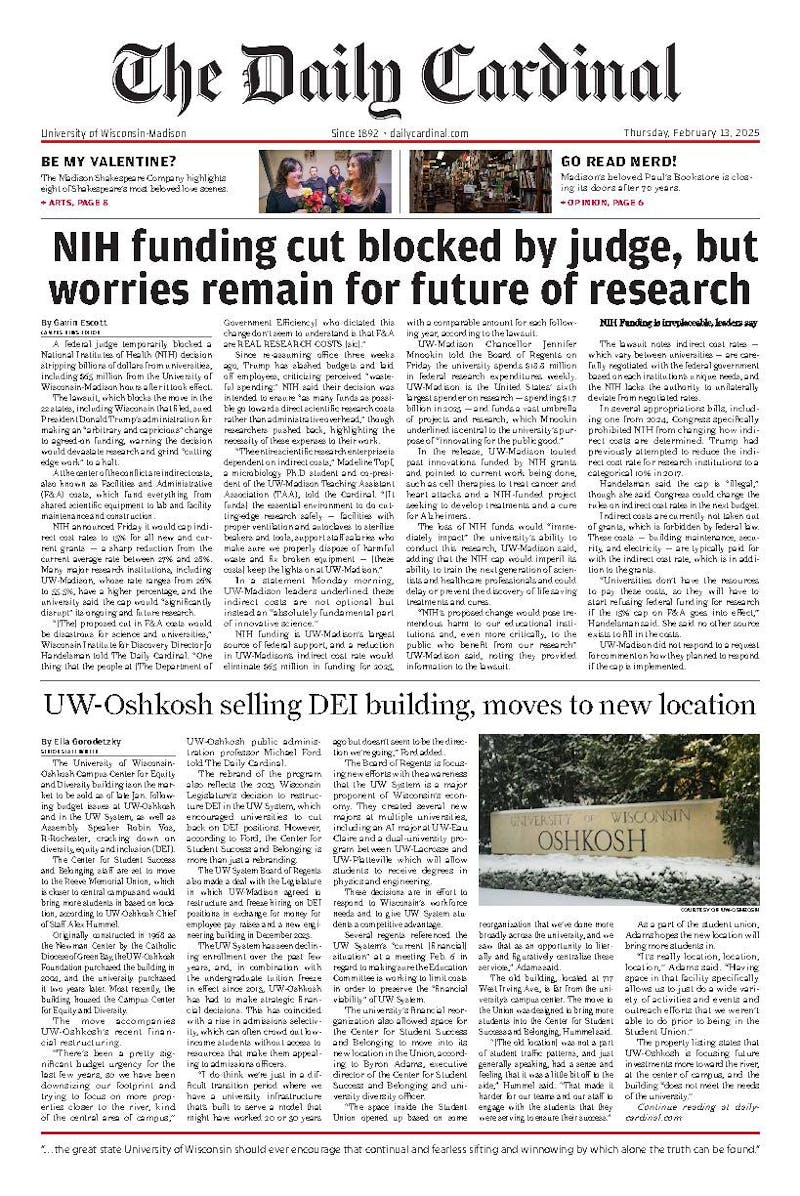Tommy Thompson leads incumbent U.S. Sen. Russ Feingold, D-Wis., in a hypothetical matchup, according to a poll released Friday from the conservative-leaning Wisconsin Policy Research Institute.
The poll showed that Thompson has the support of 51 percent of likely voters while Feingold received the support of 39 percent. Nine percent said they were undecided.
According to a statement from WPRI, Thompson likely leads the race because of support from Independents. Both Thompson and Feingold received strong support from their respective parties.
Ken Goldstein, UW-Madison political science professor and director of the poll, said hypothetical matchup results could change if Thompson officially enters the race.
""The survey shows a lead for Thompson and a race between these two Badger state political titans would be intense. Still, hypothetical match ups can change once a potential candidate officially enters the race … it will be interesting to see if his support and lead hold up once the back and forth of a campaign starts,"" he said in a statement.
Feingold's campaign said their focus will ""not be on polls"" as they head into the election season.
""There will be a lot of polls between now and Election Day eight months from now,"" Trevor Miller, Feingold's spokesperson said in a statement.
The poll also looked at hypothetical matchups between 2010 gubernatorial candidates.
Milwaukee County Executive Scott Walker was reported favorable by 36 percent of potential voters in a head-to-head matchup with Milwaukee Mayor Tom Barrett, who received 32 percent of the vote.
Walker led fellow Republican candidate and former U.S. Rep. Mark Neumann by 19 percentage points in a matchup. In a matchup between Neumann and Barrett, the two tied with 34 percentage points each.
Keith Gilkes, Walker's campaign manager, said the poll is indicative of the ""strength of Scott's candidacy.""
However, nearly one third of voters said they are undecided on who they support for the governor's election.
""Voters still have lots to learn about the candidates. While all three are viewed favorably by Wisconsin likely voters, with each candidate, almost half of likely voters did not know enough about the candidate to offer opinion,"" Goldstein said.
The survey polled 600 randomly selected likely voters through phone interviews between March 7 and 9. The poll had a margin of error of plus-or-minus four percentage points.





